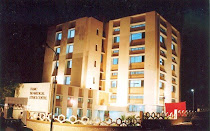Consent is an agreement / permission given by the patient to the doctor who is doing any surgery to his or her body. This is a standard procedure in hospitals. One has the duty to one’s own body and no one can do anything without the permission of the patients consent.
Informed Consent is not only getting the patient to sign on the consent form but to take the informed consent of the patient. Consent must be given by the patient. The patient has to sign first. This is extremely important. The signature has to be taken much before the operation and not just before the operation.
The patient must be informed about the following:
i) The nature of the operation – What, Why, How, of the operation. Who is the Chief Surgeon?
ii) The risks, success and failures and complications
iii) If there is an alternative treatment.
iv) A clean picture must be given to the patient.
v) Make a disclosure of oneself and through Nurses or Paramedical staff.
vi) Operation should be taken seriously.
Confidentiality is the secrecy that the doctor has to keep about the patient’s sickness. The doctor cannot give the patient’s information unless the patient gives in writing that he / she has no objection.
When confidentiality is broken a lot of problems are created in families, in the work place or society. Breach of confidentiality can become a medico-legal issue and a source of litigation. It has brought about divorce, unemployment or discrimination.
The Doctor should inform the patient about HIV and make him understand and tell him that he should inform his close relatives. If that is not done, then the doctor has the right to inform the relatives of the patients. In certain cases where someone can be saved from some disease i.e HIV, it can be informed to the concerned party. In courts, police department, public health and authorities can be told.
Hazel Mendonca and Henrietta Monseratte (Present Participants 2011-2012)


